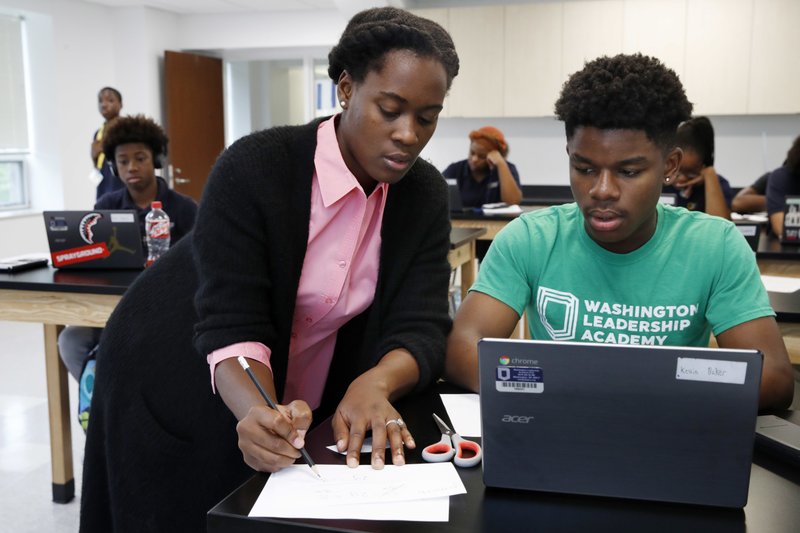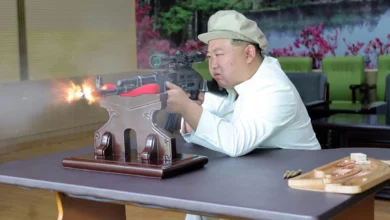
Eight months after the audacious assassination of North Korean leader Kim Jong Un’s estranged half brother, a Malaysian court is trying to unweave a complicated web of deception, political intrigue and cold-blooded brutality — a scheme allegedly cooked up by a network of North Koreans who have never, and almost certainly never will, set foot in the courthouse.
Was it the perfect crime?
After Kim Jong Nam was killed in a crowded Kuala Lumpur airport budget terminal, the Internet broadcast the attack to millions of people around the world. Security camera footage showed Kim, who had been jumped by two mysterious women, gesturing for help, his face covered with an obscure but exceedingly potent poison. By the time he got to a hospital, he was dead.
But the viral videos merely scratched the surface.
On Tuesday, members of the court hearing the case will go to the airport crime scene for the first time as the prosecution steps up its case against the only suspects actually facing punishment — two young Southeast Asian women whose lives are on the line, but who claim they were tricked into carrying out what they thought was a harmless prank.
Here’s a recap of who Kim Jong Nam was and what’s come out at the trial so far about the suspects, their defense and the case against them.
___
THE MARK
When Kim Jong Nam checked in for his AirAsia flight bound for Macau on Feb. 13, his passport read Kim Chol, aged 46.
If it was an attempt to fool anyone, it was a feeble one — Kim Chol is the North Korean equivalent of John Doe — and despite some quick and seemingly pro forma protests and denials from North Korean officials in the days afterward, it became apparent almost immediately that this victim wasn’t just any paunchy middle-aged traveler.
Kim Jong Nam, who was 45 or 46, was the eldest son of the late North Korean leader Kim Jong Il.
He had been seen as a potential heir to the country’s dynastic leadership until he very publicly fell from grace when he was caught trying to enter Japan in 1998 to visit Tokyo Disneyland. What ensued was a chain of events that would leave him in de facto exile, spending most of his time in Macau, a Chinese territory famous for its casinos and high rollers.
It’s not clear if Kim Jong Nam and Kim Jong Un, born of a different mother, had ever met. But by 2010, when Kim Jong Un was revealed as the heir apparent, Kim Jong Nam was regarded — when he was regarded at all — as a luxury-hungry, tattoo-covered playboy well out of the North Korean political power picture.
On the fringes, he continued to nevertheless be something of a potential threat. His ability to stay in Macau indicated he had at least some Chinese support and, because of his pedigree, was seen by some as a viable replacement if Kim Jong Un were to ever be removed from power.
Rumors have it there were at least two previous attempts on his life in the past several years. According to authorities, Kim was carrying $100,000 in cash at the time of his death, which a prominent Japanese newspaper reported was a payoff for a meeting he had just prior to the attack with an agent connected to the CIA.
Such mysteries aren’t likely to get much of an airing in court.
Malaysian officials have never officially accused Pyongyang of involvement. And they have made it clear they do not want the trial to be politicized.
___
THE “LIZARD TAILS”
The young women who face the death penalty if convicted are Siti Aisyah, who is Indonesian, and Doan Thi Huong, who is Vietnamese.
Huong wore a T-shirt emblazoned with “LOL” — laugh out loud — when she lunged for Kim at the airport. Both women now wear bullet-proof vests and handcuffs when going in and out of their court appearances.
Under Malaysian law, the women can’t be sentenced to die if they didn’t have intent to kill. And that, essentially, is their defense.
Both claim they were “lizard tails,” the unwitting and expendable victims of an elaborate plot orchestrated by several men who convinced them they were taking part in a reality TV show, a comedy in which they would wipe lotion on the faces of unsuspecting marks. While the men recorded their actions on cellphones, the women practiced the “pranks” on several occasions. A man known as “James” was the first to enlist Aisyah, followed by another man she knew as “Chang.”
Authorities suspect several other North Korean men played a role in the attack. But four of them left Malaysia that same day. James, who has since been identified as Ri Ji U, left later after holing up at the North Korean Embassy in Kuala Lumpur.
Prosecutors contend the women knew they were handling poison — the banned nerve agent VX, which is very hard to concoct by civilians and is better known in military contexts as a potential weapon of mass destruction.
Police officer Wan Azirul Nizam Che Wan Aziz testified that Huong’s manner was “aggressive” when she attacked Kim, and that she didn’t apologize to him, as she had done to another person she approached in a similar manner at the airport two days earlier. A video of that encounter was also shown to the court.
The prosecution also contends the women very deliberately rushed to wash their hands after the attack, indicating they were fully aware of the danger from the VX. Security camera footage shows both holding their hands away from their bodies as they rush to separate restrooms.
___
THE MISSING NORTH KOREANS
No one seriously believes Aisyah and Huong acted alone.
Not only did North Koreans recruit the two, according to the prosecution, but they supplied the poison.
Prosecutors have argued that Kim Jong Nam was killed with the VX nerve agent. How the women avoided poisoning themselves remains a question mark. There is a VX variant — VX2 — that can be divided into two component parts that are relatively safe until mixed together on the target. But an expert witness has testified that requires high temperatures and was not a practical option.
Investigators say a third suspect, “Mr. Y,” who was videoed wearing a black baseball cap and carrying a backpack as he walked with Huong at the airport the morning of the attack, applied one half of the VX2 to her hand. Chang, who was taped meeting Aisyah in a cafe not too far from the check-in kiosk where Kim was attacked, allegedly did the same for the Indonesian woman.
Chang has since been identified as Hong Song Hak, and Malaysian investigators say they have yet another North Korean suspect, “Hanamori.”
But they are all long gone.
The North Korean Embassy where James was holed up is open, but operating without an ambassador in residence. Malaysia has recalled its diplomatic staff from Pyongyang as well. The killing of Kim, and North Korea’s repeated accusations of misconduct by the Malaysian authorities, sank what had been a relatively friendly relationship between the two countries.




